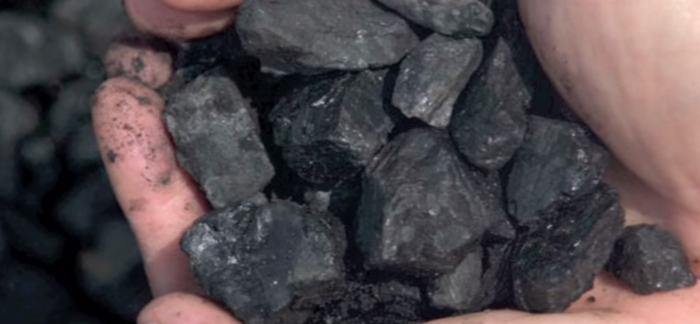Much of modern society is built upon the energy that fossil fuels can provide. These fuels come from the depths of our planet and provide use with what is called a “nonrenewable” energy supply. That’s because fossil fuels are a finite resource. Once they are consumed, they are gone forever. Since fossil fuels make up at least 85% of the energy that we’re using every day, it is easy to understand why an emphasis on including renewable energy sources to supplement fossil fuels is becoming a higher priority.
1. That’s Some Tasty Matter
Fossil fuels don’t just appear magically like money at a Penn and Teller Las Vegas show. They come from organic matter that decomposes and is compressed by the heat and pressure that occurs within the Earth’s crust. Depending on the organic matter, which comes from plants, animals, or potentially even humans in the future, natural gas, coal, and oil form and are then extracted for use.
2. Happy 1 Millionth Birthday
Fossil fuels take time to develop. Scientists today believe that it takes several million years for the remains of organic matter to be compressed enough to transform into fossil fuels. It is believed that the oil and coal that we are using today began forming in what we know as the Carboniferous Period of the planet. This means the fuels began forming long before there were dinosaurs ruling over our planet.
3. Everyone Is Doing It
Fossil fuels can be transformed into virtually any type of energy that we need. Coal is often used to create electricity. Oil is used to create the combustion energy that is needed for transportation and heating. Even natural gas can be used for eating and combustion energy. This means that we all use fossil fuels in some way every day, whether it is by plugging in a vacuum cleaner or recharging a tablet’s battery.
4. Fossil Fuels Make Great Stuff
We often use fossil fuels to create energy, but they can also be used for a wide variety of products that get made every day too. Every time you use something that has plastic components, there’s a good chance that you’re using a fossil fuel. That means your water bottle right now could have been made with oil or possibly coal that was extracted from the planet’s crust and then modified to become what you’re holding right now.
5. That’s a Bad Ratio
Did you know that it takes nearly 800 pounds of coal to create enough power so that a light bulb can be lit for 12 months? Or that it takes about 26 tons of raw petroleum to produce about 1 gallon of gasoline? The amount of fossil fuels that our modern society uses is staggering. Americans by themselves used about 18 million barrels of oil every day, with a majority of it being used to for transportation purposes. When global consumption is considered, we are spending more than 400 years of fossil fuel development for every 1 year of fossil fuel consumption.
6. It Could Run Out Fast
With current usage ratios, there is enough coal to last for more than 1,000 years. We’ve got enough oil that is known to last us for the next 100 years or so. The only problem is that if our consumption of fossil fuels goes up just 5%, then our current resources could run out in less than 100 years. That’s all resources – not just some of them. With the human population expected to reach 10 billion around the year 2050, there’s a good chance this could happen.
7. We’re Becoming More Efficient
There have been predictions of fossil fuels running out for more than 40 years. This is true. We as a society have been concerned about the consumption of fossil fuels for quite some time now. In the past, our processes for harnessing the energy that comes from burning fossil fuels was remarkably inefficient. Today, however, we can harness about 60% of the heat that natural gas produces and covert that heat into electricity. We can know get 21 gallons of gasoline from a 42 gallon barrel of crude oil [not raw petroleum] instead of 11 gallons as we did in the past. We’re improving, but ultimately it is still a finite resource.
8. Oil Shale Changes the Game
One of the most untapped resources for fossil fuels that we have today is oil shale. This shale is found all over the world and has a global resource that is estimated to be 1,000x greater than what current crude oil happens to be. The only problem is that this shale never got buried or heated enough to produce a fossil fuel. This could expand how much oil we can use and prolong our deadlines for transitioning to renewable resources, but ultimately it is a finite resources as well.
9. Different Fuels Have Different Qualities
This is especially true when it comes to coal. There are different carbon levels that can be found in coal based on how it was formed. It is the carbon that gives us the energy we need in this fossil fuel, so high carbon content equates to a better type of coal. Longer amounts of compression create higher carbon content. For example, anthracite is believe to be at least 300 million years old. It’s 95% carbon. In comparison, lignite is half the age of anthracite and contains only 25% carbon.
Nearly 90% of our coal production goes to the creation of electricity, which means every day we are putting carbon into our atmosphere and potentially contributing to global warming so we can have power. Even if the technology becomes more efficient, there’s no getting around the fact that the coal must be burned to release the carbon.
10. It’s Super Cheap
The reason why most of our energy resources come from fossil fuels right now is because they are very cheap. Mining, processing, and refining has nearly a century of development behind it, allowing the industry to produce mass amounts of power for a relatively small price. In comparison, renewable sources are relatively new and therefore much more expensive. What is ironic about renewable power sources, in fact, is that it takes fossil fuels to create the equipment that generates renewable energy.
11. We Still Have Much to Learn
Here’s one final fact that we must all consider: there is still much to learn about how our consumption of fossil fuels affects the environment and our societies. We get caught up in many speculative arguments, trying to prove a personal opinion, instead of focusing on increasing our mutual knowledge base.
Facts like these can all help us begin to see the benefits of conservation. Even if fossil fuels aren’t a major contributor to global warming, we still have a responsibility to efficiently use this finite energy source and avoid needless consumption. Future generations still need to have a world they can call home. That process begins with us.




